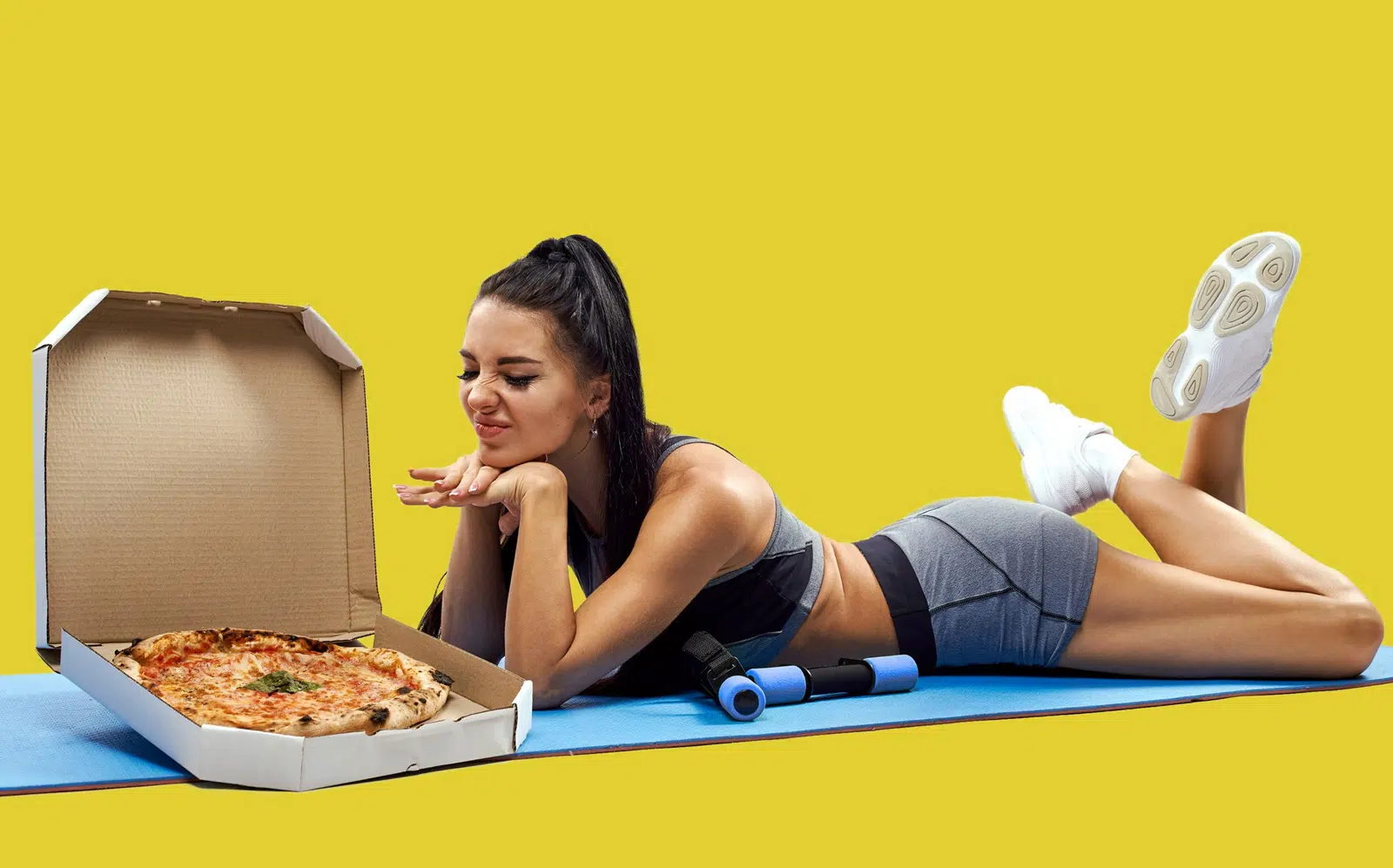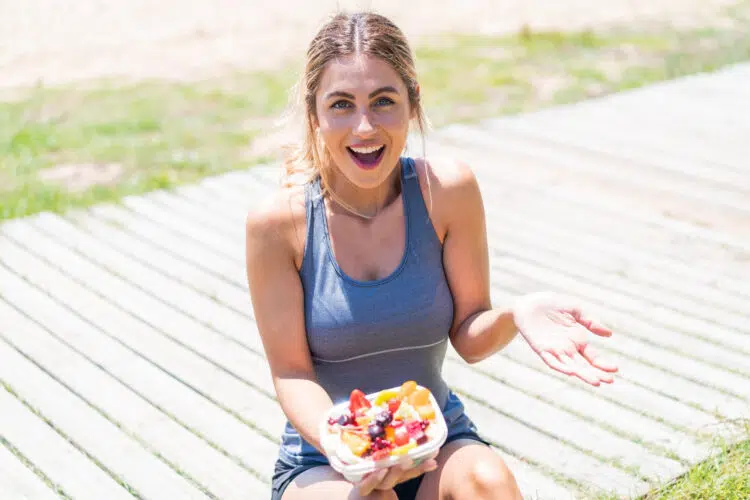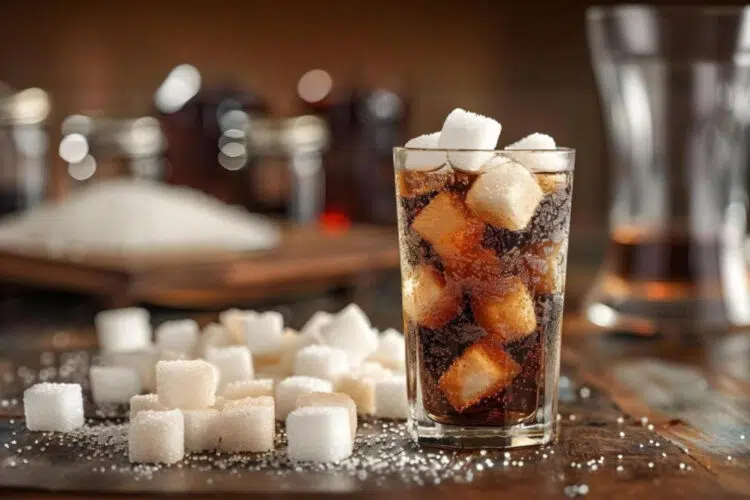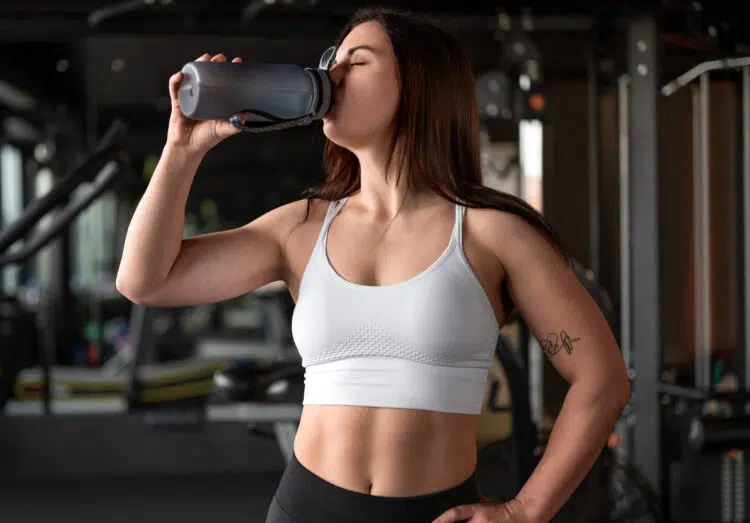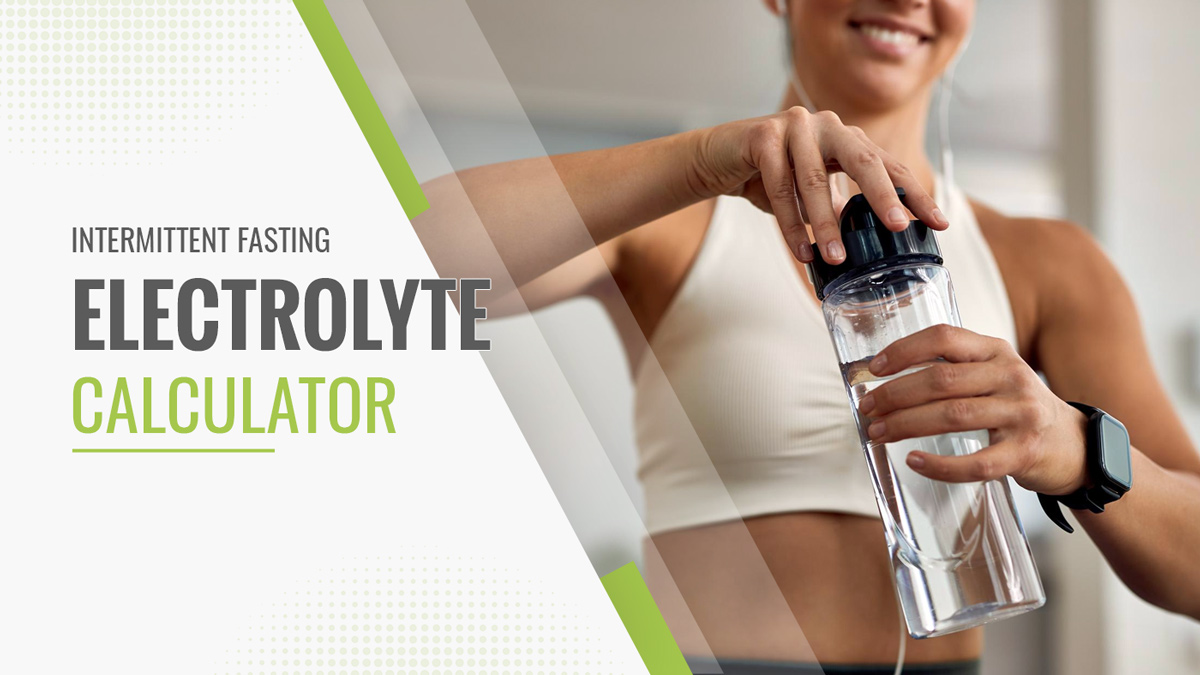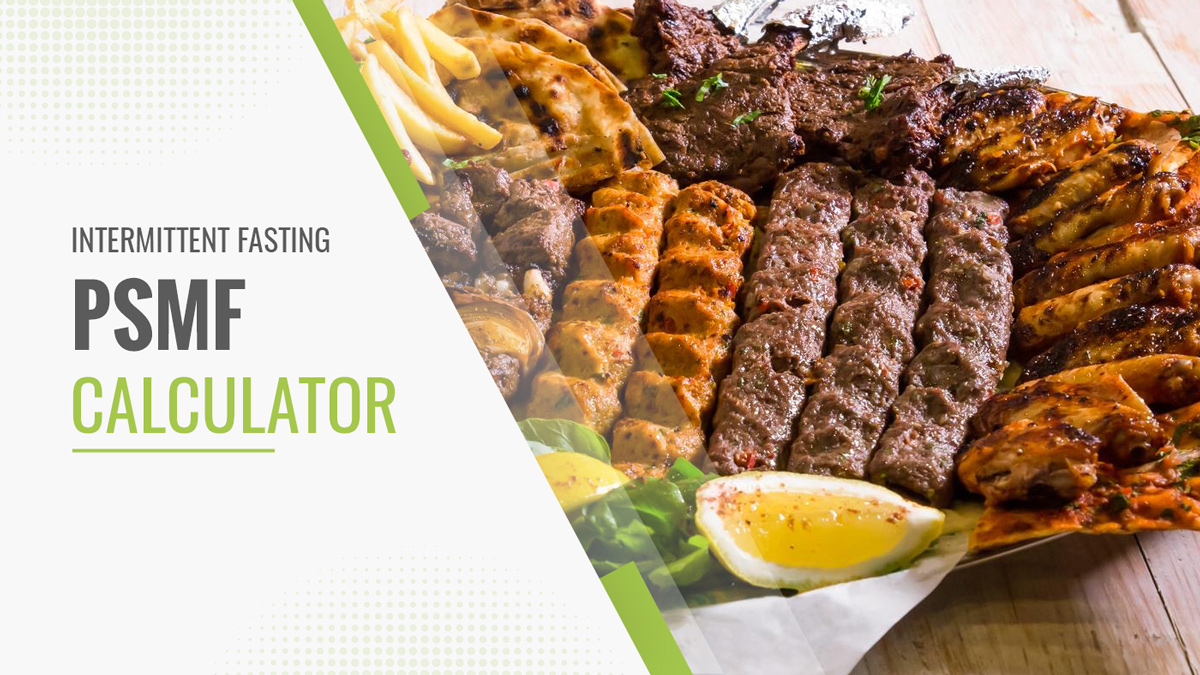I’ve been a personal trainer for more than 30 years, and during that time I’ve experimented with a host of popular and lesser-known diets. From Atkins to the Zone, I’ve tried the full alphabet of diets so I could report back to my clients and determine the best eating plan for their fitness and health goals.
And do you know what I discovered?
After all my self-experimentation, I have determined that there is no perfect one-size-fits-all eating plan, and any diet will produce results if you stick to it for long enough.
And therein lies the rub; most diets are very restrictive and that means you’ll probably have to give up your favorite foods and replace them with things that you don’t actually like eating. Needless to say, this makes sticking to any diet a chore and helps explain why so many people quit their diet after a few weeks, even if it’s producing the results they want.
In fact, research published on PubMed suggests that 40-50% of folk abandon their diet before achieving their weight loss goals (1). That’s a very poor success rate.
For this reason, I try to steer most of my PT clients away from strict diets. Instead, I prescribe small, sustainable interventions that promote weight loss without the need for a restrictive eating plan.
In this article, I share seven of my most effective weight loss tips and tricks to help you shed unwanted pounds without dieting.
Tips and Tricks for Losing Weight Without Dieting
Are you fed up with dieting? I hear you! If your never-ending diet is getting you down, you’re probably ready for a change. Use the following no-diet strategies to lose weight without trying.
1. Chew More Thoroughly and Eat More Slowly
Your stomach and brain are intrinsically linked. However, despite only being a couple of feet apart, these two organs are slow to communicate, and it can take a long time for your stomach to tell your brain that it’s full. This delay means that a lot of people eat more food than they need, which inhibits weight loss.
Chewing your food more thoroughly and eating more slowly provides your stomach with the time it needs to talk to your brain and tell it you’re full.
Studies suggest that eating more slowly results in decreased food intake, increased fullness, and smaller self-controlled portion sizes (2). People who eat more slowly also tend to have a lower Body Mass Index (BMI) than fast eaters. BMI is the relationship between your weight and height.
Eating more slowly requires self-control, mindfulness, and practice but invariably prevents the overeating that can derail weight loss.
Key Takeaway: Eat more slowly to avoid overeating. Chew each mouthful thoroughly before swallowing and take short breaks during your meal. You’ll stop eating sooner, consume fewer calories, and lose weight more easily.
Related: Fix Your Diet Forever in Six Weeks!
2. Do Not Eat While Distracted
Eating while distracted is a leading cause of weight gain. Research suggests that eating while for example, watching TV can result in a 25% increase in kilocalorie consumption, which is more than enough to impede weight loss (3).
Eating while distracted means you won’t be in touch with your appetite and may eat more food than you need to feel satiated. In contrast, being more aware of your degree of fullness means you are less likely to overeat.
A lot of people watch TV or scroll through their social media feeds during mealtimes. In contrast, paying more attention to eating and your satiety can help reconnect your stomach and brain, reducing the amount of food you eat. You should also avoid eating while working, driving, or doing anything else that takes your mind off what and how much you are eating.
Key Takeaway: In the same way that the mind-muscle connection can make your workout more effective, a stronger mind-stomach connection can help prevent overeating. Keep your mind on your meal by avoiding distractions like TV and your phone.
3. Serve High-Calorie Foods on Smaller Plates
Average serving sizes have increased significantly over the last few decades. It’s no coincidence that people have gotten heavier and fatter at the same time. Losing weight invariably means eating less but putting smaller servings on regular-sized plates makes meals look small and less appealing, triggering increased hunger and feelings of deprivation.
Putting a meal on a smaller plate makes it look larger, which tricks your mind into thinking that you’re eating more food than you really are. This makes kilocalorie and food restriction less obvious, and you’re more likely to feel satisfied despite your smaller meals (4).
This trick is especially effective with high-calorie foods such as pasta, bread, potatoes, French fries, rice, cereal, etc.
Key Takeaway: Trick your brain into thinking you are eating more than you really are by serving high-calorie foods on smaller plates. Eating less of these foods can help promote weight loss.
4. Drink Water 30 Minutes Before Meals
Your body uses various systems to regulate your appetite, including hormones and stretch receptors in your stomach. Controlling hunger is a critical part of successful weight loss. The less hungry you are, the less you’ll eat. Similarly, the sooner you feel full, the sooner you’ll feel the urge to stop eating.
One way to fool your body into feeling fuller, sooner, and prevent overeating is to drink 500 ml (about a pint) of water 30 minutes before your meals. In studies, this simple strategy helped people eat less and lose more weight than their non-water drinking cohorts (5).
Water is kilocalorie-free but quite bulky. Consequently, it will pre-stretch the receptors in your stomach, so you start your meal already feeling full and you won’t want to eat as much food to satisfy your appetite. Most people, especially exercisers, will benefit from drinking more water, so this trick is a nutritional twofer.
Key Takeaway: Take the edge off your appetite by drinking 500 ml of water 30 minutes before eating. You’ll feel full sooner, and consume less food overall, leading to easy weight loss.
5. Stop Drinking Sugary Drinks
I mostly avoid telling my clients not to eat certain foods to lose weight. Banning foods invariably leads to feelings of deprivation and even resentment. It can also result in cravings. Tell someone not to eat bread, and what do they want? Bread, bread, and more bread!
However, when it comes to sugary drinks, I’m more than happy to break my own rule because things like soda, fruit juice, commercial smoothies, sweetened coffee and tea drinks, and energy drinks are packed with enough sugar and kilocalories to derail almost any weight loss diet.
In fact, simply replacing these drinks with sugar-free alternatives may be the only thing you need to do to lose weight without dieting.
For example, most sugar-sweetened sodas contain roughly 10 grams of sugar per 100 ml, which equates to about 40 calories. Therefore:
330 ml can
- 35 grams of sugar
- 140 kilocalories
500 ml bottle
- 53 grams of sugar
- 210 calories
1-liter (1000 ml) bottle
- 105 grams of sugar
- 420 calories
Replacing high-sugar drinks with kilocalorie-free alternatives is a research-backed way to lose weight without dieting (6). Of course, there are some concerns regarding the safety of artificial sweeteners, but compared to the dangers of being overweight, any risk is very small.
Key Takeaway: Replacing sugary drinks with calorie-free alternatives can save you hundreds of kilocalories. In and of itself, this one strategy could be enough to help you lose weight without dieting.
6. Consume a Protein Shake Before Eating
Most exercisers understand the value of protein, and many use protein shakes to help them hit their protein intake goals. Protein shakes are concentrated, low in sugar and fat, and low in calories, and usually taste pretty good, too. Most contain 20-30 grams of protein per serving while containing just 120-150 kilocalories.
However, in addition to enhancing post-exercise recovery and muscle growth, consuming protein before eating may also boost weight loss.
Research suggests that chugging down a protein shake shortly before a meal can help promote satiety and boost your metabolism, leading to faster, easier weight loss (7). In addition, protein is critical for preserving muscle mass which is sometimes lost during a weight-loss diet.
Key Takeaway: Consume a serving of protein powder 15-30 minutes before your main meals. You’ll feel full sooner while optimizing your metabolism and protecting your muscles from catabolism and atrophy.
Related: Morning Protein Shake Ritual: 30-Day Body Transformation Revealed
Closing Thoughts
Losing weight usually means eating less. This creates a calorie deficit which, research tells us, is critical for successful weight loss (8). However, eating less is often easier said than done.
Most diets severely limit your food choices and slash the size of your meals, making hunger impossible to avoid. While most people can handle hunger for a few days or weeks, eventually it will wear away your willpower and you’ll either cheat or quit your diet. Consequently, the failure rate for most diets is very high.
The good news is that you don’t have to diet to lose weight. In fact, there are numerous tricks you can use to lose weight without really trying. In most cases, these strategies help reduce hunger, so you’ll naturally eat less without obvious food restrictions.
So, don’t feel that you have to follow a strict diet to lose weight. Sure, diets can work, but only for as long as you can stick to them. For many people, making small but sustainable changes is a better way to shed unwanted pounds.
I’ve used the tips in this article for many years and prescribe them to my personal training clients. In many cases, they’re the only intervention required for successful, sustainable weight loss.
Related: The Top 25 Simple Weight Loss Tips
References:
- Institute of Medicine (US) Subcommittee on Military Weight Management. Weight Management: State of the Science and Opportunities for Military Programs. Washington (DC): National Academies Press (US); 2004. 4, Weight-Loss and Maintenance Strategies.
- Hollis JH. The effect of mastication on food intake, satiety, and body weight. Physiol Behav. 2018 Sep 1;193(Pt B):242-245. doi: 10.1016/j.physbeh.2018.04.027. Epub 2018 Apr 21. PMID: 29684415.
- Robinson E, Aveyard P, Daley A, Jolly K, Lewis A, Lycett D, Higgs S. Eating attentively: a systematic review and meta-analysis of the effect of food intake memory and awareness on eating. Am J Clin Nutr. 2013 Apr;97(4):728-42. doi: 10.3945/ajcn.112.045245. Epub 2013 Feb 27. PMID: 23446890; PMCID: PMC3607652.
- Peng M. How does plate size affect estimated satiation and intake for individuals in normal-weight and overweight groups? Obes Sci Pract. 2017 Jun 27;3(3):282-288. doi: 10.1002/osp4.119. PMID: 29071104; PMCID: PMC5598018.
- Jeong JN. Effect of Pre-Meal Water Consumption on Energy Intake and Satiety in Non-obese Young Adults. Clin Nutr Res. 2018 Oct;7(4):291-296. doi: 10.7762/cnr.2018.7.4.291. Epub 2018 Oct 31. PMID: 30406058; PMCID: PMC6209729.
- McGlynn ND, Khan TA, Wang L, Zhang R, Chiavaroli L, Au-Yeung F, Lee JJ, Noronha JC, Comelli EM, Blanco Mejia S, Ahmed A, Malik VS, Hill JO, Leiter LA, Agarwal A, Jeppesen PB, Rahelic D, Kahleová H, Salas-Salvadó J, Kendall CWC, Sievenpiper JL. Association of Low- and No-Calorie Sweetened Beverages as a Replacement for Sugar-Sweetened Beverages With Body Weight and Cardiometabolic Risk: A Systematic Review and Meta-analysis. JAMA Netw Open. 2022 Mar 1;5(3):e222092. doi: 10.1001/jamanetworkopen.2022.2092. PMID: 35285920; PMCID: PMC9907347.
- Hudson JL, Bergia RE 3rd, Campbell WW. Effects of protein supplements consumed with meals, versus between meals, on resistance training-induced body composition changes in adults: a systematic review. Nutr Rev. 2018 Jun 1;76(6):461-468. doi: 10.1093/nutrit/nuy012. PMID: 29697807.
- Strasser B, Spreitzer A, Haber P. Fat loss depends on energy deficit only, independently of the method for weight loss. Ann Nutr Metab. 2007;51(5):428-32. doi: 10.1159/000111162. Epub 2007 Nov 20. PMID: 18025815.
Tip: If you're signed in to Google, tap Follow.


